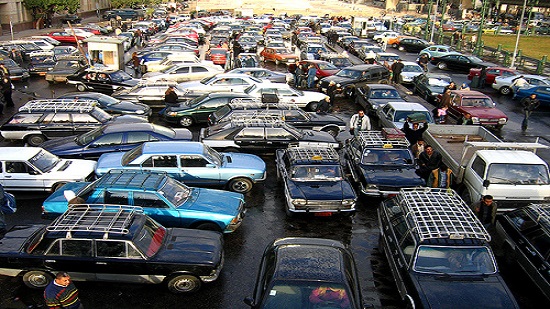Will legalizing “Sais” (unauthorized individuals in Egypt who collect fees from residents for parking their cars on public streets) be passed unchallenged?
Will we witness a law issued by the House of Representatives for a group of people who have no profession and no real work, except for violating the rights of people on (public) streets, which are considered public property protected by the law?
Is maximizing the resources of the municipalities achieved through payment of LE 2,000 that they would receive in exchange for the so-called license for “Sais” workers, who will use the license to collect more than that compensation in one day?
Are these individuals involved in unofficial economic activity — as they continue to claim — that should be protected and legalized by the government? Can they be trusted on the level of security?
What about the citizen, his rights, and the duty to protect him from the domination of those individuals who now illegally receive payment for parking cars in public streets? What will happen when (the activities of Sais) are legalized through an enforced law? What are the MPs doing to the people?
One citizen, expressing the sentiments of many others, commented: How can this happen? This is a crime of (Sais) occupying public roads, imposing (their) power, bullying residents, and vandalizing their cars if those residents do not pay them, and at best, it is begging, which is a crime in and of itself. Legalizing a crime is a crime, and a waste to the value of work and damaging to the standing of the government.
Another commented that the spread of Sais workers in the streets destroys the image of the government and hurts tourism and investment.
Yet another citizen remarked that there is no country in the world with thugs who park cars in the streets except in Egypt, with previously unauthorized Sais workers to be protected by the new law.
There used to be ticket counters in the downtown area of Cairo, and I think in Alexandria as well, to collect fees in exchange for parking cars in a civilized way known all over the world, with revenues used to improve roads and other services.
The counters are now gone, and bullying by the Sais workers has appeared (in their place). Moreover, the matter has become worse, with Sais now mandatory on every street, having spread (across Egypt s cities) like an epidemic. Now, parliament is stepping in to legalize this anomaly, giving Sais legal protection.
A perilous road ahead foretells of possible clashes between citizens and Sais, quarrels that will not end soon. The Egyptian street does not need this, and therefore caution must be exercised going forward.



